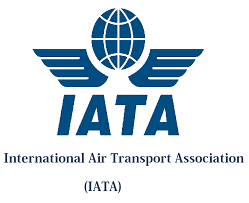The International Air Transport Association is set to lead a global push for greener aviation at its upcoming two-day World Sustainability Symposium in Hong Kong with a deadline of 2050.
The gathering, slated for October 21 to 22, 2025, was made known through a statement endorsed by the Senior Vice President for Sustainability and Chief Economist, Marie Thomsen, on Tuesday.
The event comes at a key moment between the recently concluded 42nd ICAO Assembly and the upcoming COP30 climate summit.
The main goal of the WSS is to drive practical action toward reducing carbon emissions in aviation.
Thomsen said the symposium will bring together “thinkers, doers, and regulators” to decide how the industry can meet its net-zero emissions target by 2050.
“The WSS is a forum for new ideas and fresh collaboration. Aviation is just one part of the broader global energy transition. If we want to succeed, we need radical collaboration across governments, industries, and institutions,” Thomsen said.
According to her, one major topic at the WSS will be the role of Sustainable Aviation Fuel in reducing the sector’s emissions, describing SAF as “the fuel that will do the heavy lifting” in achieving net-zero goals.
The statement noted that several countries in the Asia-Pacific region, including India, Malaysia, and Vietnam, are well-positioned to scale up SAF production.
China is also taking the lead. The country aims to reach carbon neutrality by 2060, with emissions peaking before 2030.
Thomsen said, “China has a proven track record in strategic planning and delivery. Its SAF pilot programme has been extended, and over three million tonnes of production capacity are in development.”
However, Thomsen warned that scaling up SAF and green technologies requires significant funding: “There is plenty of money in the market. Just look at how much has gone into artificial intelligence. But while oil returns about 20%, renewable energy gives around five per cent. To close that gap, we need the right policies and incentives from governments.”
Thomsen expressed concern about the lack of readiness, stressing that “We can’t afford for CORSIA, which has global support, to fall apart. If each state sets up its own system, we risk fragmentation, which is completely incompatible with international aviation.”
To support decarbonisation, IATA has launched several tools, including the SAF Matchmaker, a SAF Registry, and the Aviation Carbon Exchange, where airlines can buy carbon credits.
She added, “What we need now is a global, liquid, and transparent market for both SAF and carbon credits.
“It is time to break the silos and work across ministries, industries, and disciplines. Anything else won’t work. Reaching net-zero by 2050 will take more than ambition; it will take aligned strategies, serious investment, and real cooperation.”















